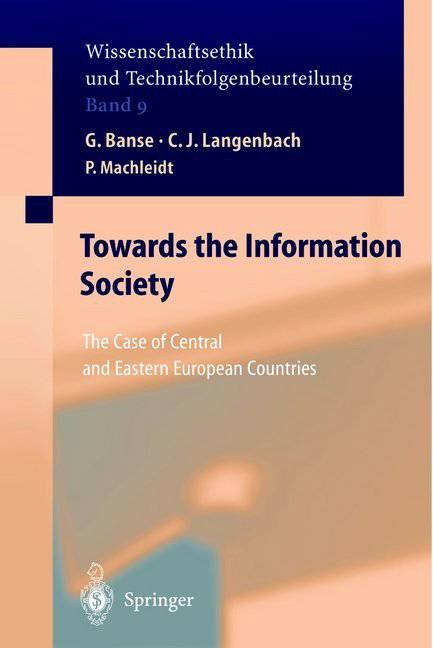
- Afhalen na 1 uur in een winkel met voorraad
- Gratis thuislevering in België vanaf € 30
- Ruim aanbod met 7 miljoen producten
- Afhalen na 1 uur in een winkel met voorraad
- Gratis thuislevering in België vanaf € 30
- Ruim aanbod met 7 miljoen producten
Zoeken
Towards the Information Society
The Case of Central and Eastern European Countries
€ 52,95
+ 105 punten
Omschrijving
Information and knowledge play an increasingly important role in the implementation of public policies, in particular those of the Central and Eastern European Countries. They are involved in many respects in the elaboration of scientific programs. They are more and more present in the political decision making process and as topic for scientific conferences. They are often at the centre of international discussions on related topics, for example, differences in approaches to produce and apply knowledge or different responses to social function of information. A major lesson of these past years applies to democracy. Europeans demand more involvement in decisions that concern them. This demand goes weH beyond decision making. For public action to be acceptable and efficient, the whole process should become more democratic, from the defmition of the problems, to the implementation and the evaluation of solutions. In the context of conducting research on the consequences of scientific and technological advance, the Europäische Akademie Bad Neuenahr-Ahrweiler in Germany and the Academy of Science of the Czech Republic organised a conference on the relationship between "democracy-participation-technology assessment" in February 1999. The objective of the workshop was to express and to the problems of transition "from exchange various viewpoints and attitudes information society to knowledge society. " The great response given to the international conference underlines the need not only for Central and Eastern European Countries to take into consideration more common projects like this for the future.
Specificaties
Betrokkenen
- Uitgeverij:
Inhoud
- Aantal bladzijden:
- 214
- Taal:
- Engels
- Reeks:
- Reeksnummer:
- nr. 9
Eigenschappen
- Productcode (EAN):
- 9783642074936
- Verschijningsdatum:
- 9/12/2010
- Uitvoering:
- Paperback
- Formaat:
- Trade paperback (VS)
- Afmetingen:
- 156 mm x 234 mm
- Gewicht:
- 326 g

Alleen bij Standaard Boekhandel
+ 105 punten op je klantenkaart van Standaard Boekhandel
Beoordelingen
We publiceren alleen reviews die voldoen aan de voorwaarden voor reviews. Bekijk onze voorwaarden voor reviews.










